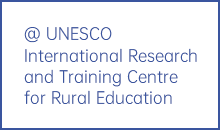The China-Africa Deans of Education Forum 2024 successfully took place in Beijing on September 5, 2024. The opening ceremony featured speeches from H.E. Prof. Chen Jie, Vice Minister of the Ministry of Education of the People's Republic of China and Chairperson of the Chinese National Commission for UNESCO, Ms. Stefania Giannini, UNESCO Assistant-Director General for Education, Prof. Kang Zhen, Vice President of Beijing Normal University (BNU), Ms. Sophia Ashipala, Head of Department of Education, Science, Technology and Innovation at the African Union Commission, and Prof. Lin Yigang, Vice President of Zhejiang Normal University. Keynote speakers included H.E. Mr. François Havyarimana, Minister of National Education and Scientific Research of Burundi, and H.E. Mr. Yacoub Ould Moine, Minister of Higher Education and Scientific Research of Mauritania, who was joined by his senior advisor, Dr. Ahmed M. Elmouna.
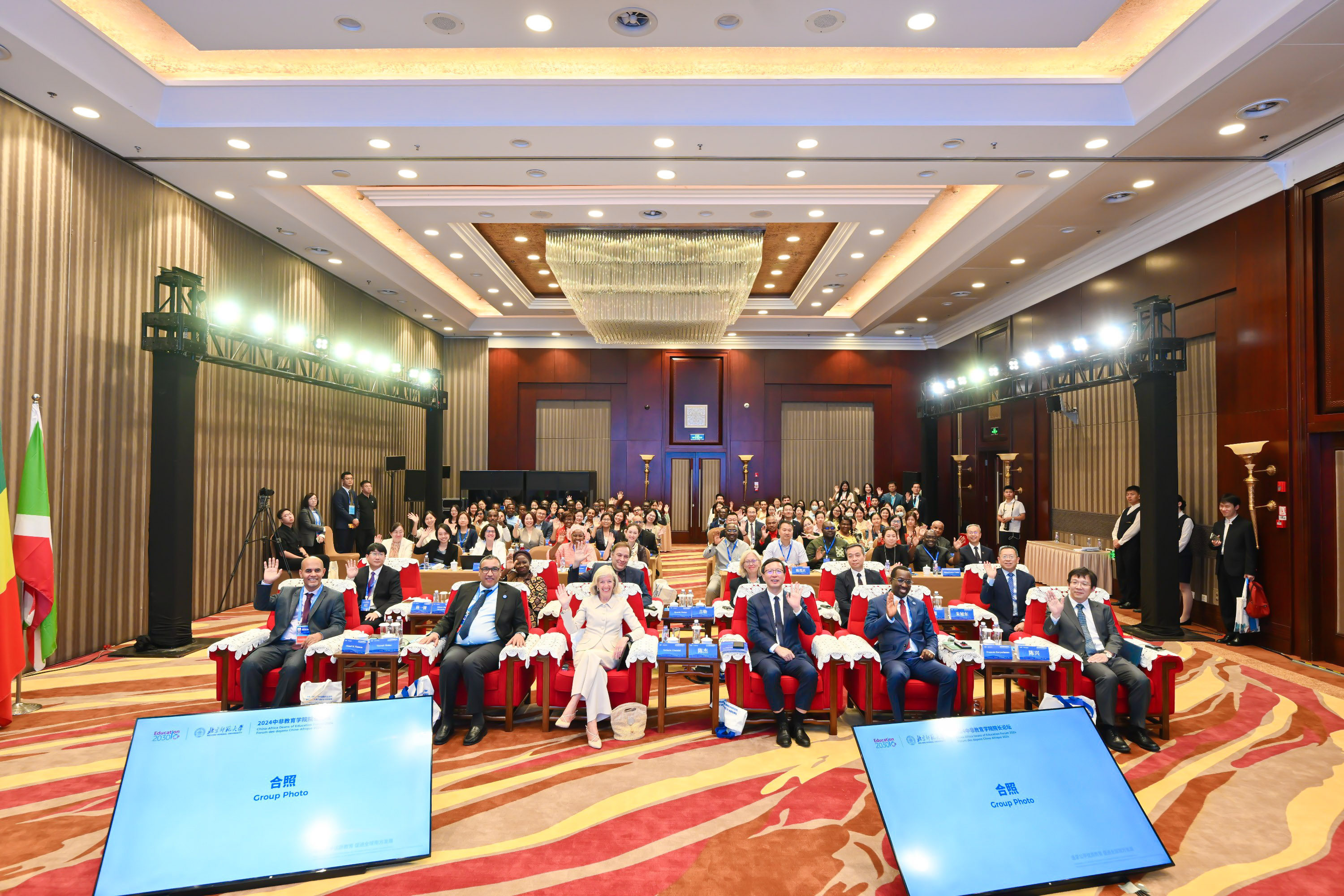
In his address, H.E. Prof. Chen Jie emphasised that since its launch in 2022, the China-Africa Deans of Education Forum has become a critical platform for policymakers, researchers, and educators to share knowledge, engage in policy dialogues, and foster partnerships to advance teacher education. He highlighted the forum’s role in addressing teacher education challenges in line with the Education 2030 Agenda, furthering China-Africa collaboration, and supporting the achievement of Sustainable Development Goals (SDGs). He also proposed three key strategies to enhance teacher education cooperation: strengthening policy dialogue among China, Africa, and UNESCO; harnessing digital transformation to empower educators; and expanding and diversifying cooperation channels.
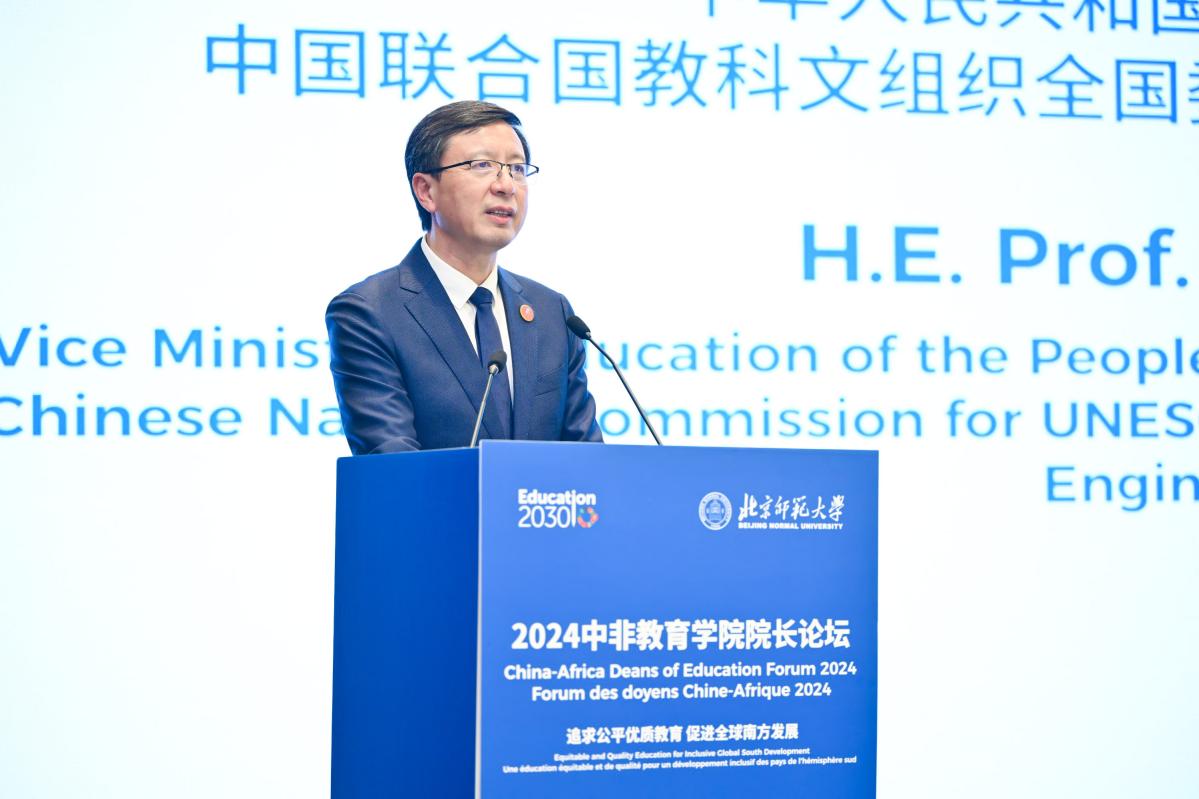
Ms. Stefania Giannini stressed the importance of ensuring equitable education for marginalised groups, including those discriminated against due to their gender, ethnicity, language, religion, nationality, financial situation or from remote rural areas, as well as those hindered by military conflicts. She called for collective efforts to guarantee that everyone, regardless of background, has access to quality education, which is fundamental for building inclusive and sustainable societies.
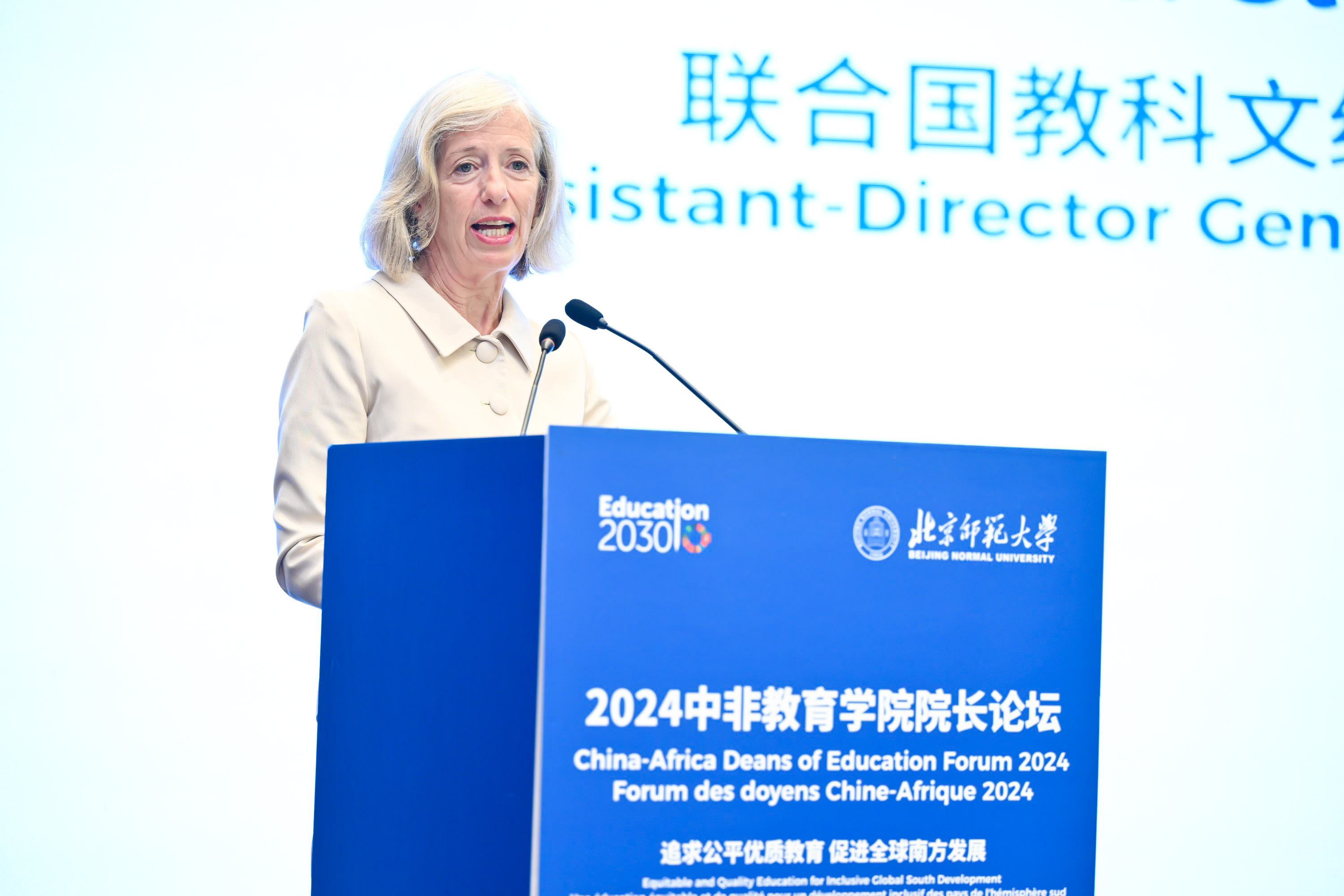
Prof. Kang Zhen highlighted BNU’s longstanding commitment to teacher education, educational science, and foundational disciplines in liberal arts and sciences. He emphasised the university's dedication to fostering international collaboration, especially with African countries, and framed both China and Africa as integral members of the Global South. He stated that shared challenges and aspirations make it essential for the Global South to work together, with openness and inclusiveness, to advance educational cooperation.
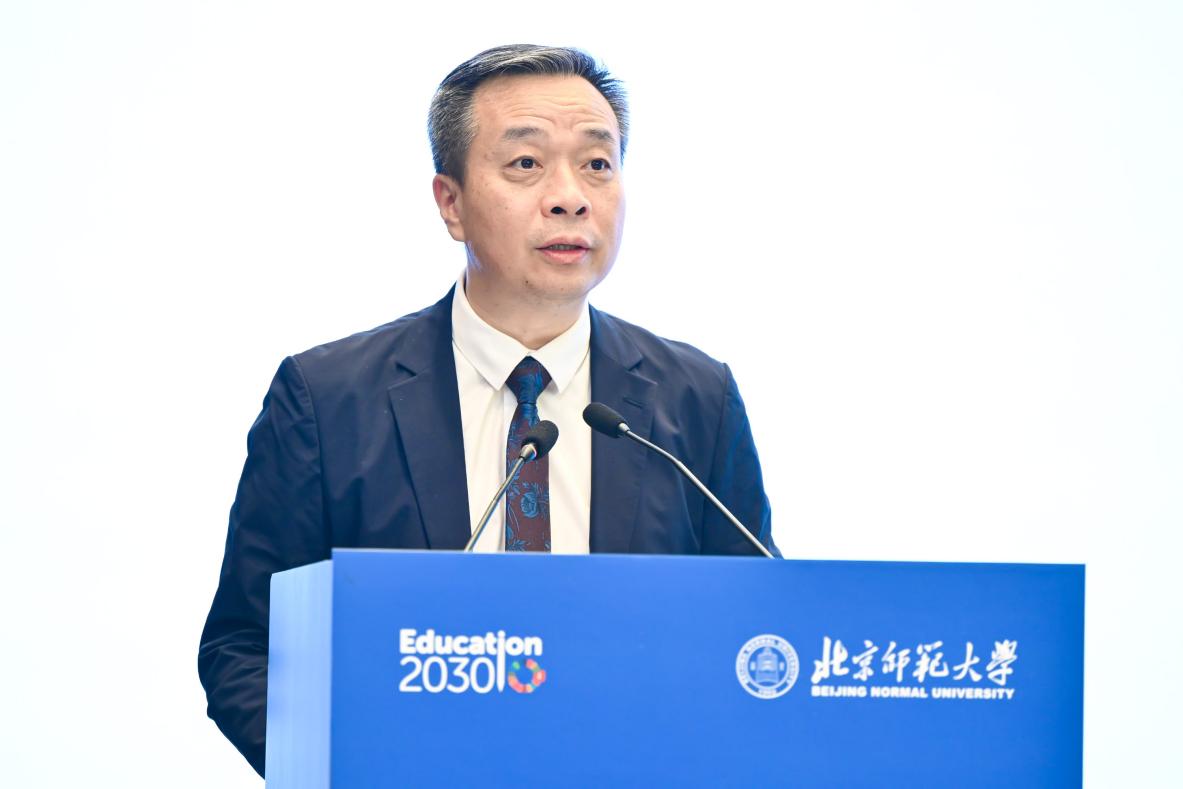
Ms. Sophia Ashipala stressed the critical role of teachers in educational reform, noting that their professional development directly influences student outcomes and societal progress. She advocated for continuous support and training for teachers to meet the demands of the modern era, highlighting that investing in educators not only raises the quality of teaching but also drives the sustainable development of entire education systems.
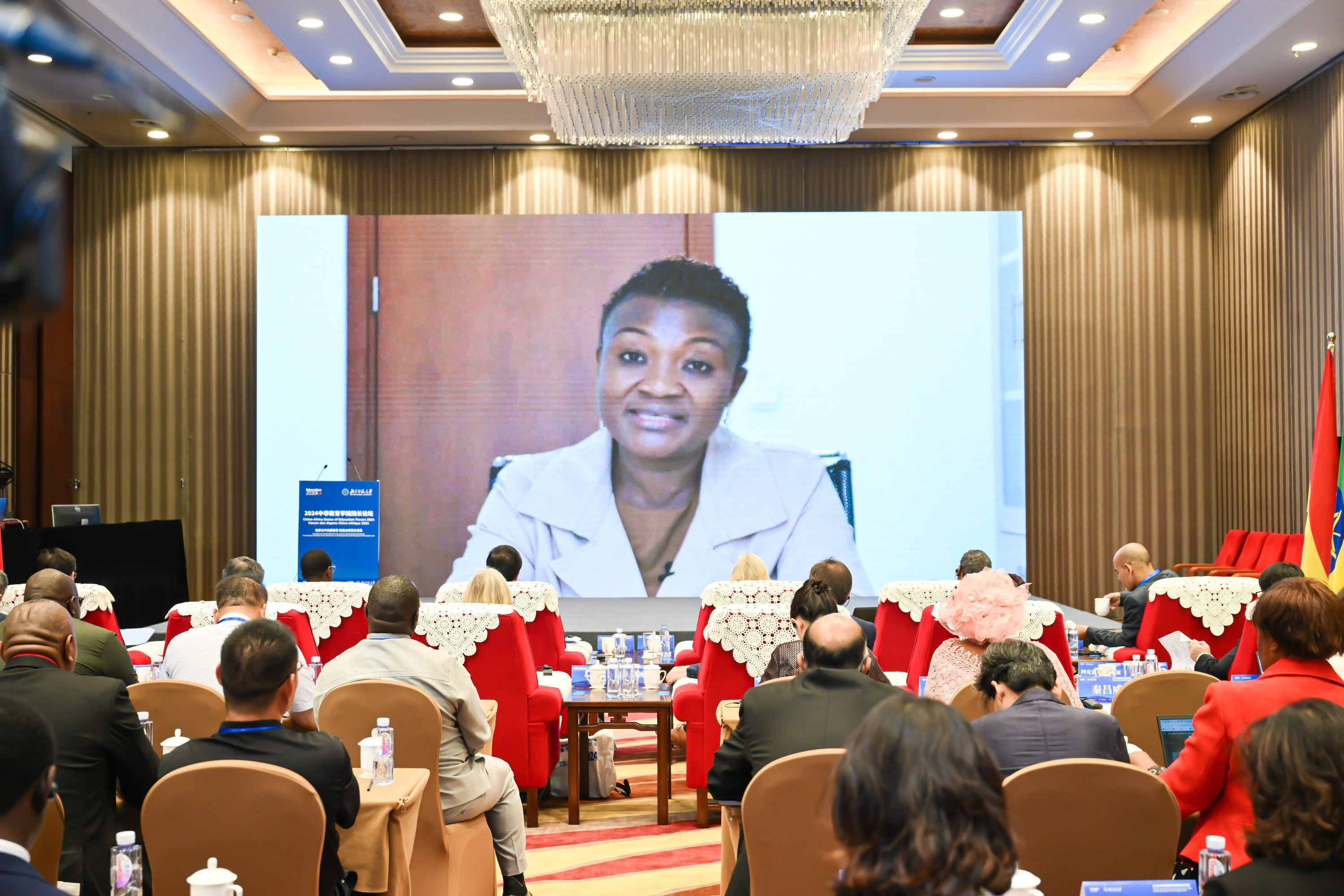
Prof. Lin Yigang expressed hope that this forum would deepen China-Africa educational cooperation, enhance forward-looking research, and leverage educational modernization to drive national modernization. He called for increased efforts to create a "clustering effect" in educational collaboration and to build a stronger China-Africa community with a shared future.
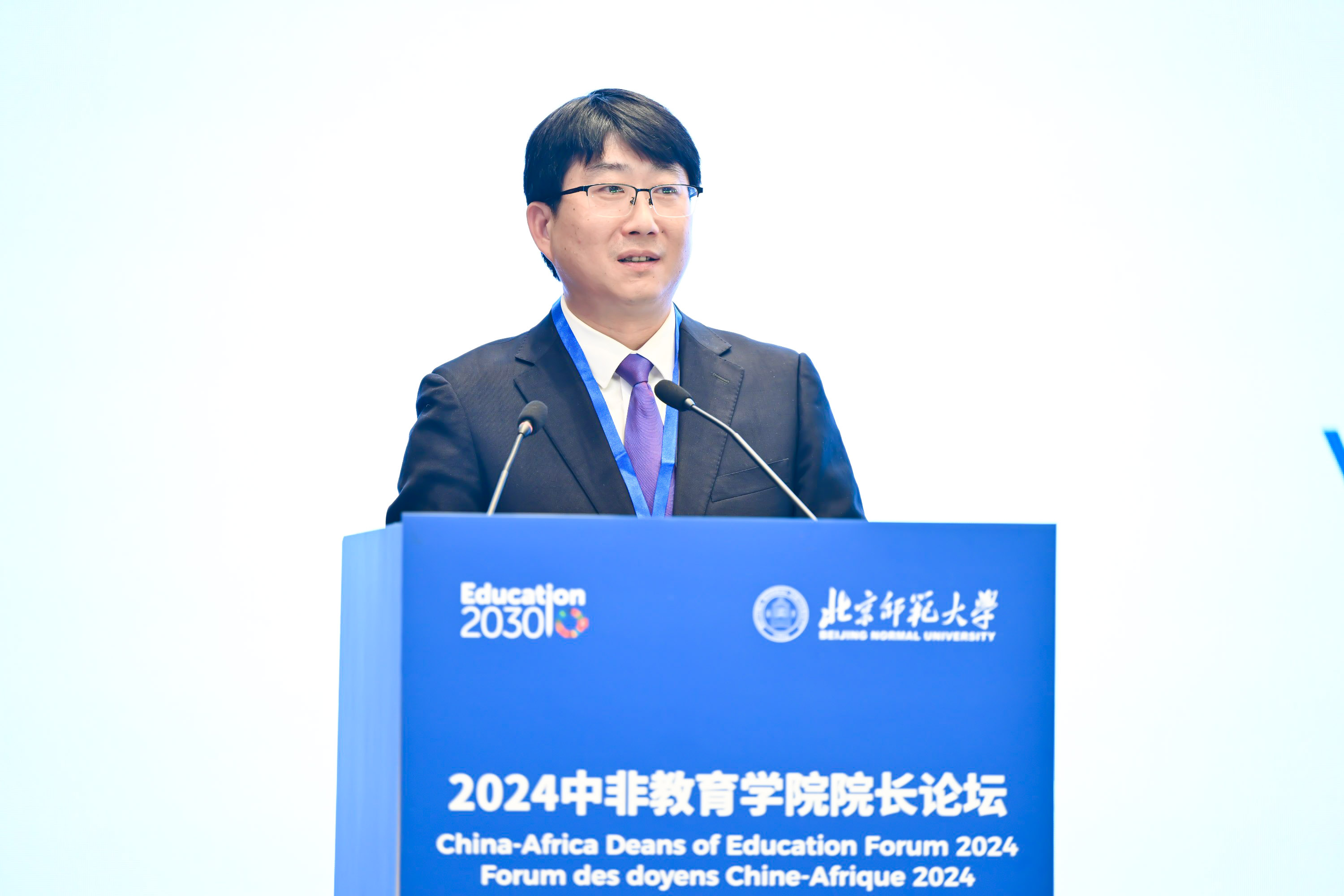
In his keynote speech, H.E. Mr. François Havyarimana urged international partners to support balanced development across all education levels, from primary to higher education, and thanked China and UNESCO for their role in improving teacher training and education quality in Burundi.
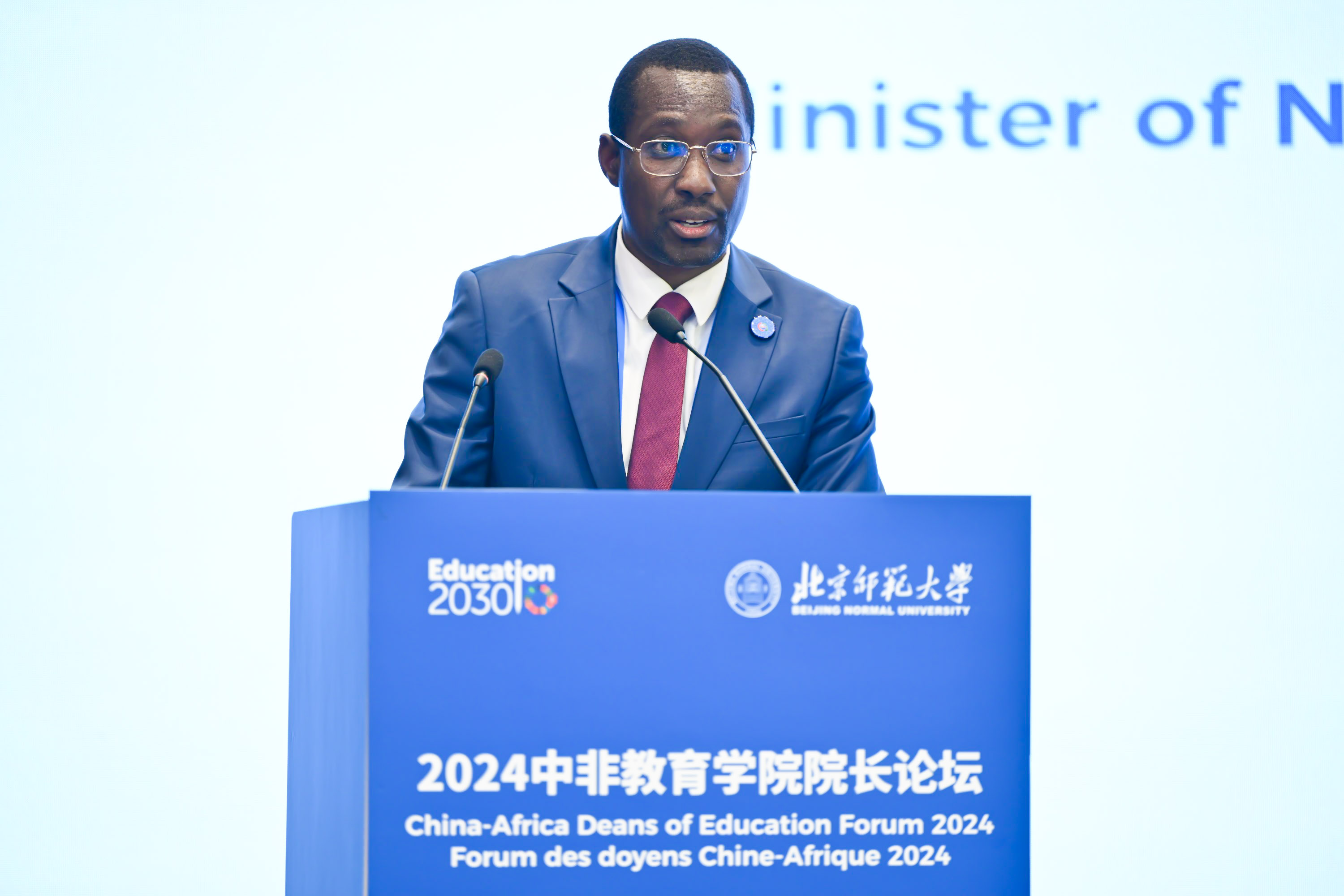
Dr. Ahmed M. Elmouna highlighted the significant disparities between the Global North and South in terms of educational resources and teacher training. He called for greater investment, policy implementation, and South-South cooperation to address these gaps, praising China’s success in educational reform and urging closer collaboration among Global South nations.
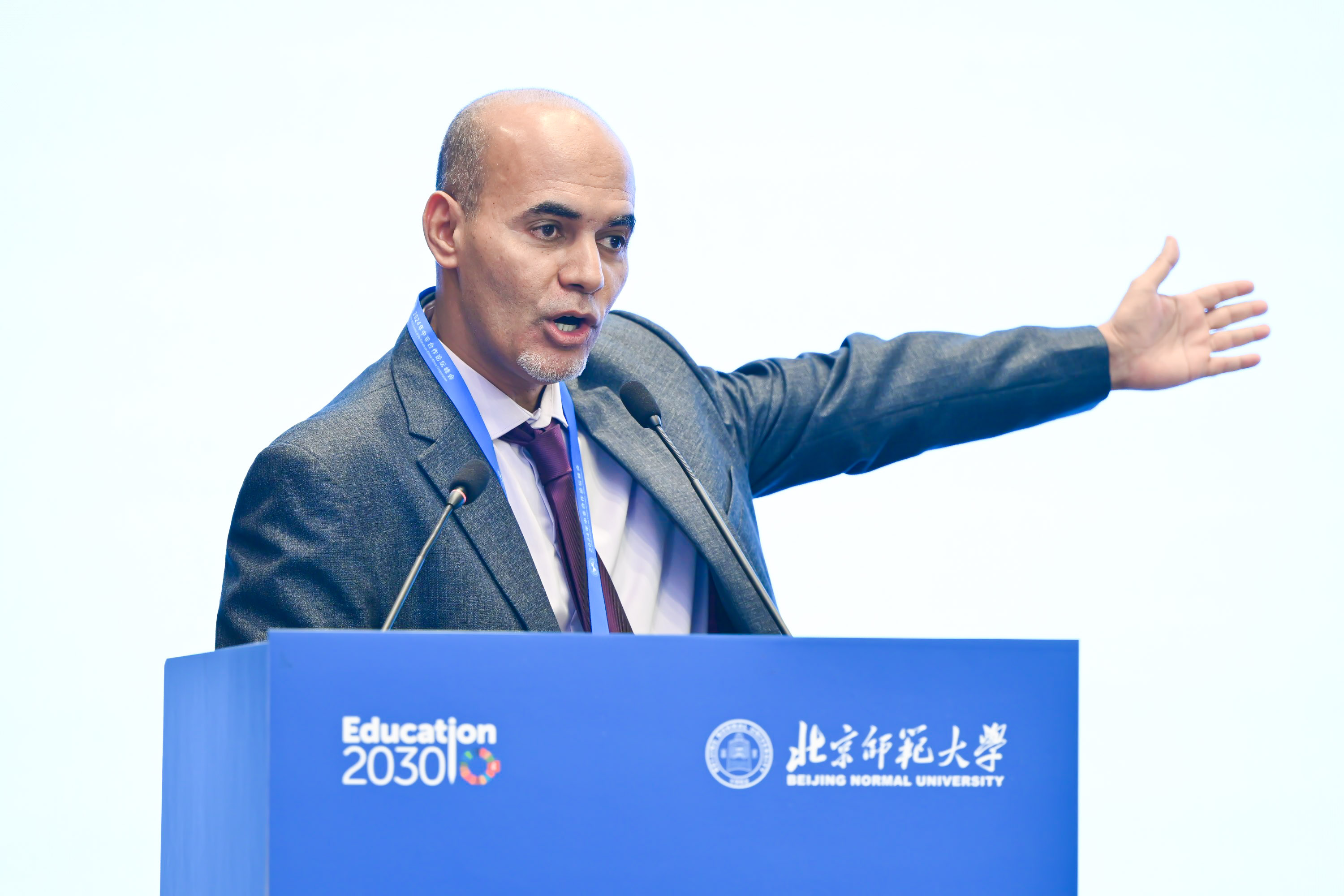
The opening ceremony and keynote speeches were moderated by Prof. Chen Xing, Vice President of Beijing Normal University.
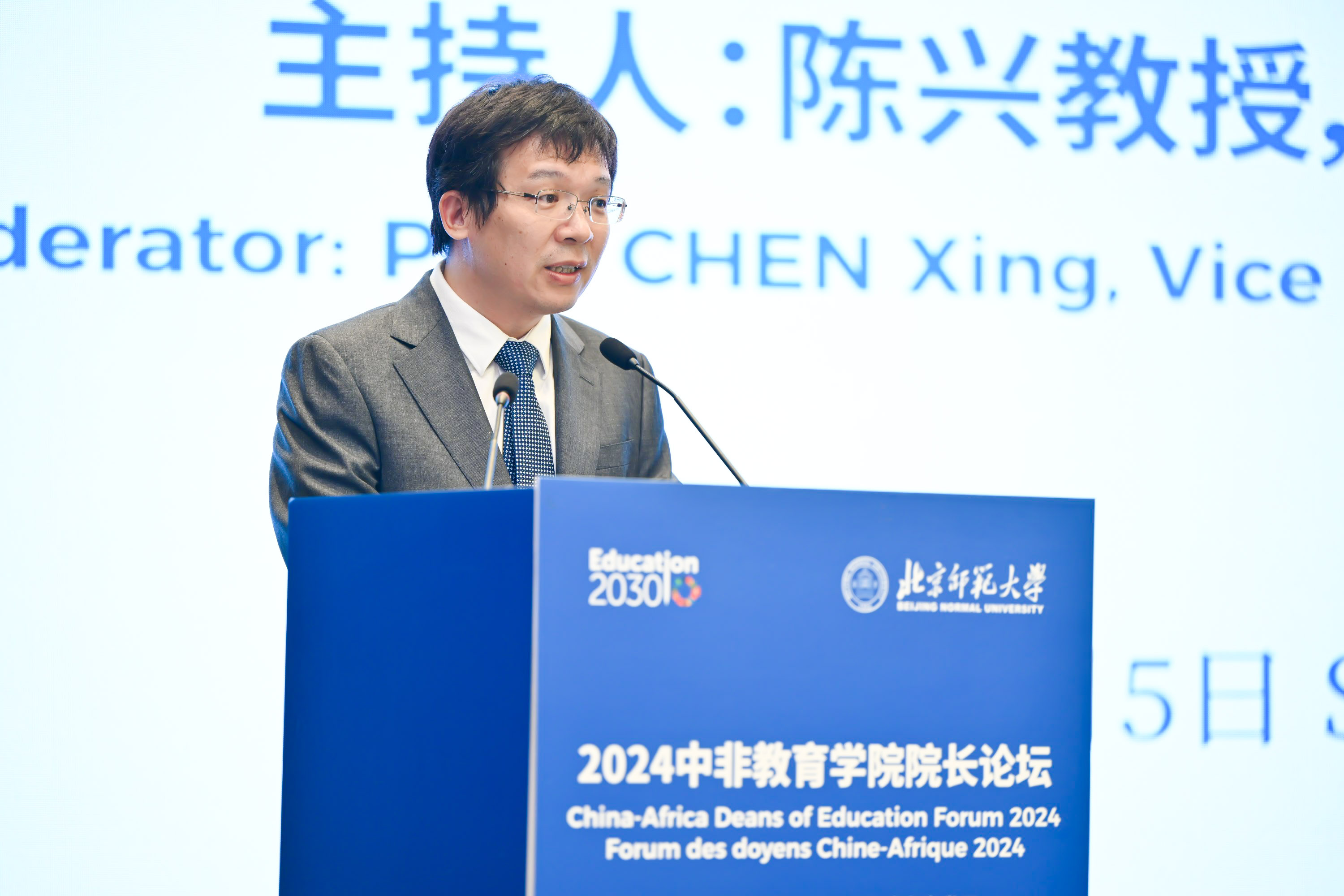
The forum featured three roundtable discussions on critical education themes.
The first roundtable, on "Pursuing Equitable and High-Quality Education for All", was moderated by Dr. Zhao Yuchi, Executive Director of UNESCO's International Research and Training Centre for Rural Education (INRULED). Panelists, including experts from China and Africa, discussed the challenges and solutions for achieving global education equity, with a focus on supporting marginalised groups.
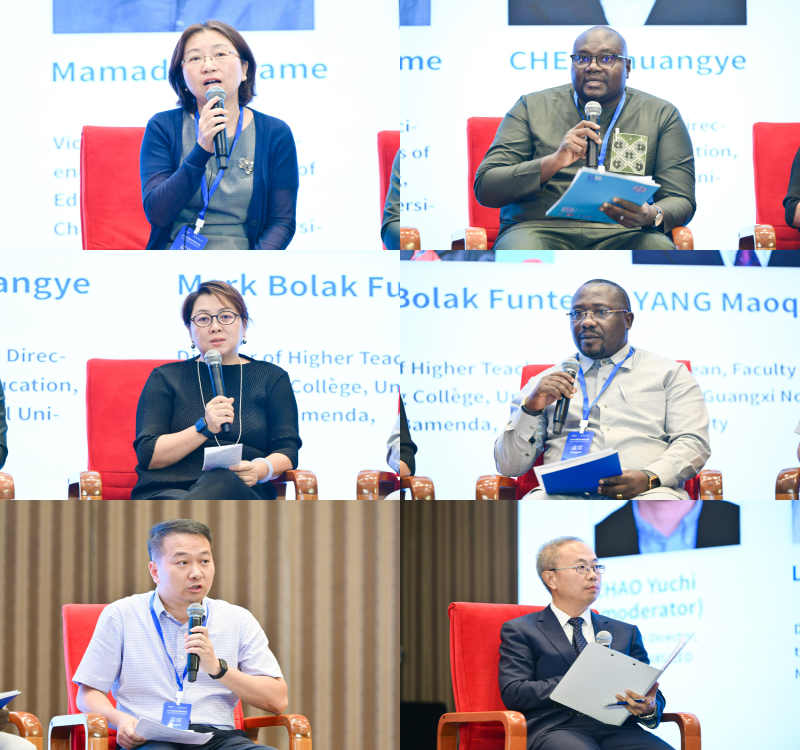
The second roundtable focused on "STEM Education: Enhancing Teaching and Learning through Technology". Moderated by Dr. Temechegn Engida from UNESCO IICBA, participants examined how digital technologies can be leveraged to overcome resource constraints and improve STEM education quality in developing countries.
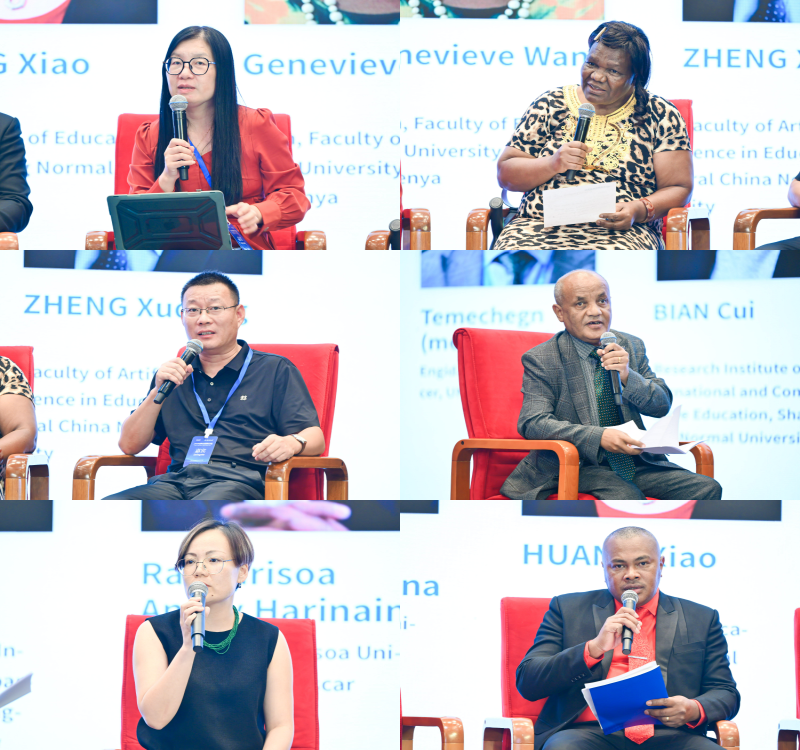
The third roundtable, on "Teacher Education: Developing Policies and Practices for a High-Quality Workforce", emphasised the critical role of teachers in delivering quality education, particularly in rural and underserved areas. The panel, moderated by Assoc. Prof. Liao Wei of Beijing Normal University, called for stronger China-Africa teacher training programs and international collaboration to support the professional growth of teachers.
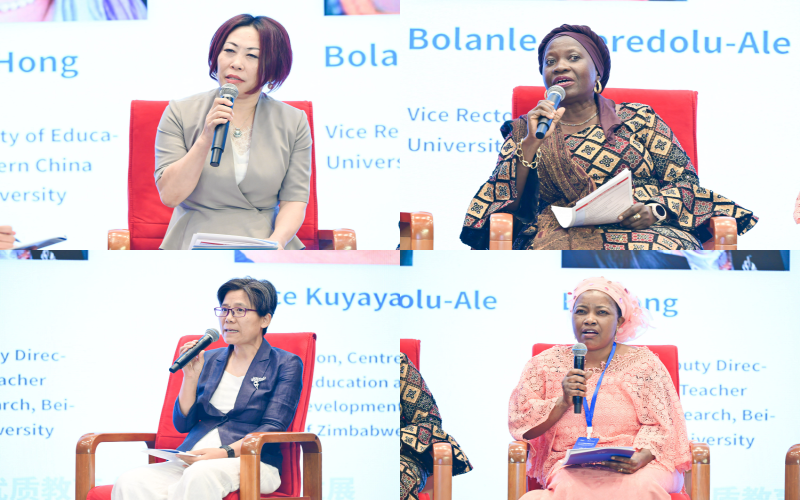
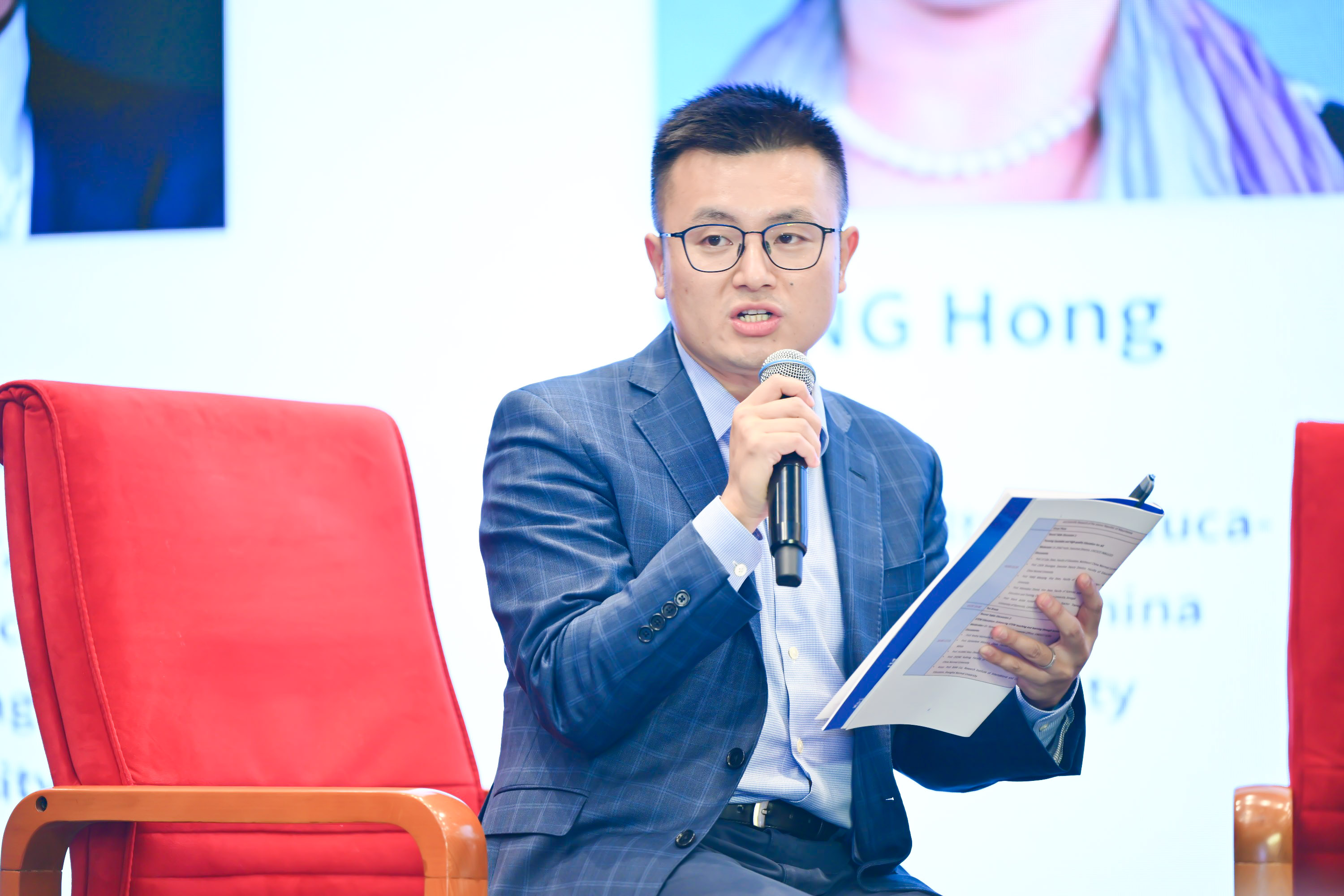
The keynote session, themed "Pursuing Equitable and Quality Education to Promote the Development of the Global South," was moderated by Prof. Teng Jun, Vice Dean of the Faculty of Education at BNU.
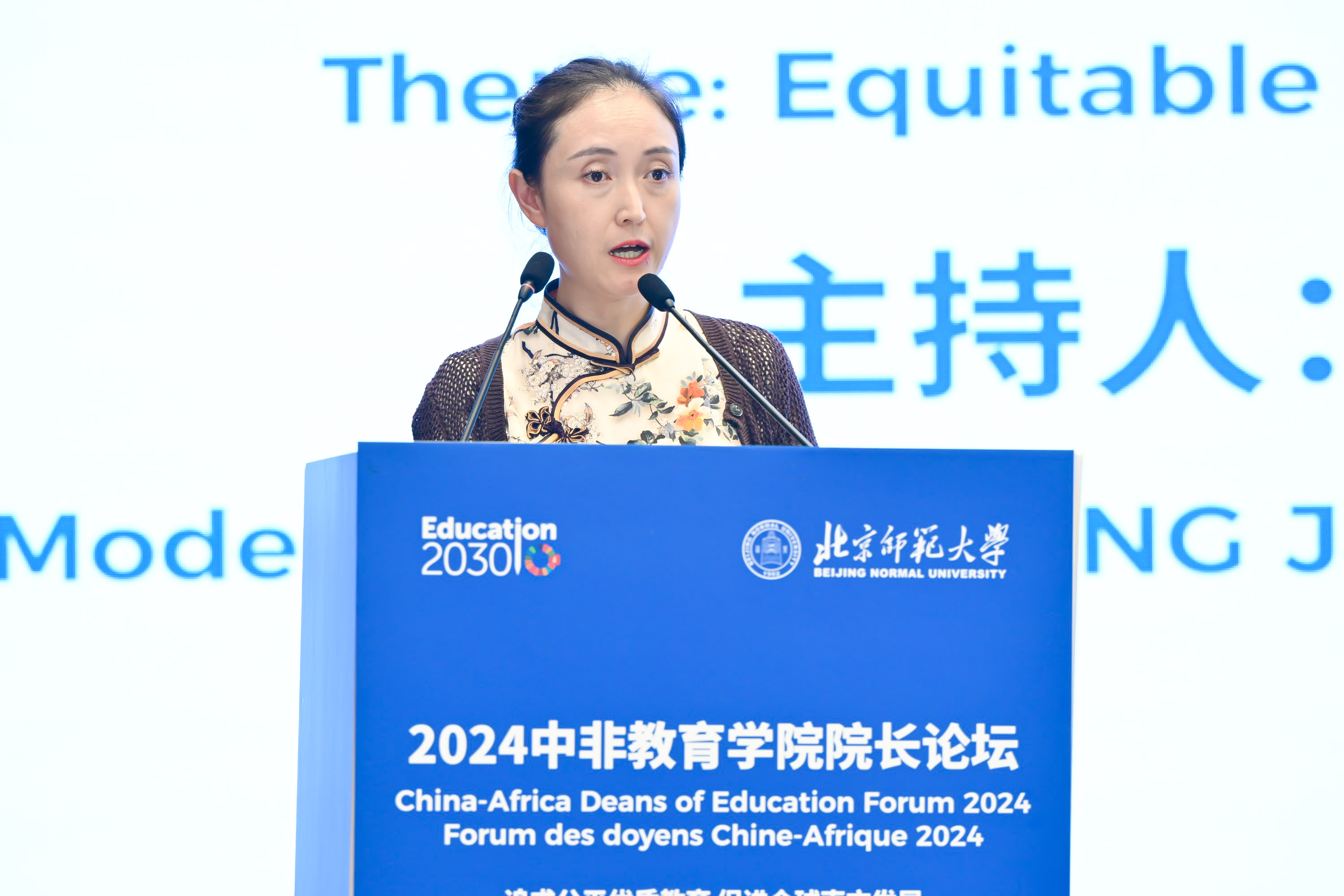
Dr. Quentin Wodon, Director of the UNESCO IICBA, presented insights from the review of the African Union's Continental Education Strategy for Africa (CESA) and its draft revisions. He discussed the current status of CESA's implementation, highlighting both its progress and ongoing challenges. Dr. Wodon emphasised the need to streamline action areas and prioritise teacher development and educational equity in order to create a more efficient and impactful framework for improving education systems across Africa.
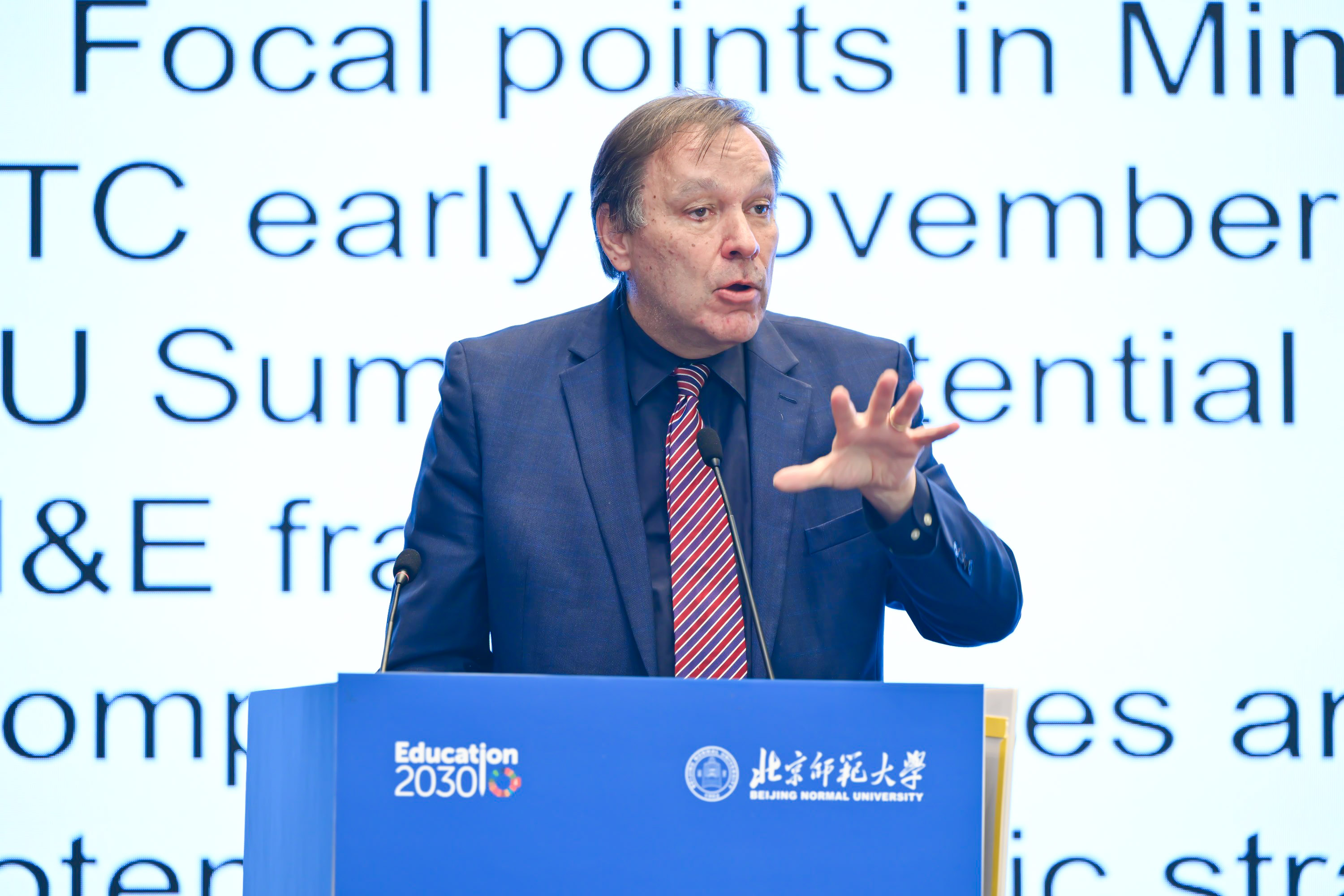
Prof. Juliet Thondhlana, from the School of Education at the University of Nottingham and UNESCO Chair of International Education and Development, spoke on "The Role of Strategic Partnerships in Promoting Equitable and Quality Education for Inclusive Global South Development". She stressed the importance of forming strategic partnerships that foster not only development but also inclusivity. Prof. Thondhlana cautioned against any remnants of colonial tendencies in international cooperation, advocating for partnerships rooted in equality, mutual benefit, and shared resources to drive progress in education and broader societal development.
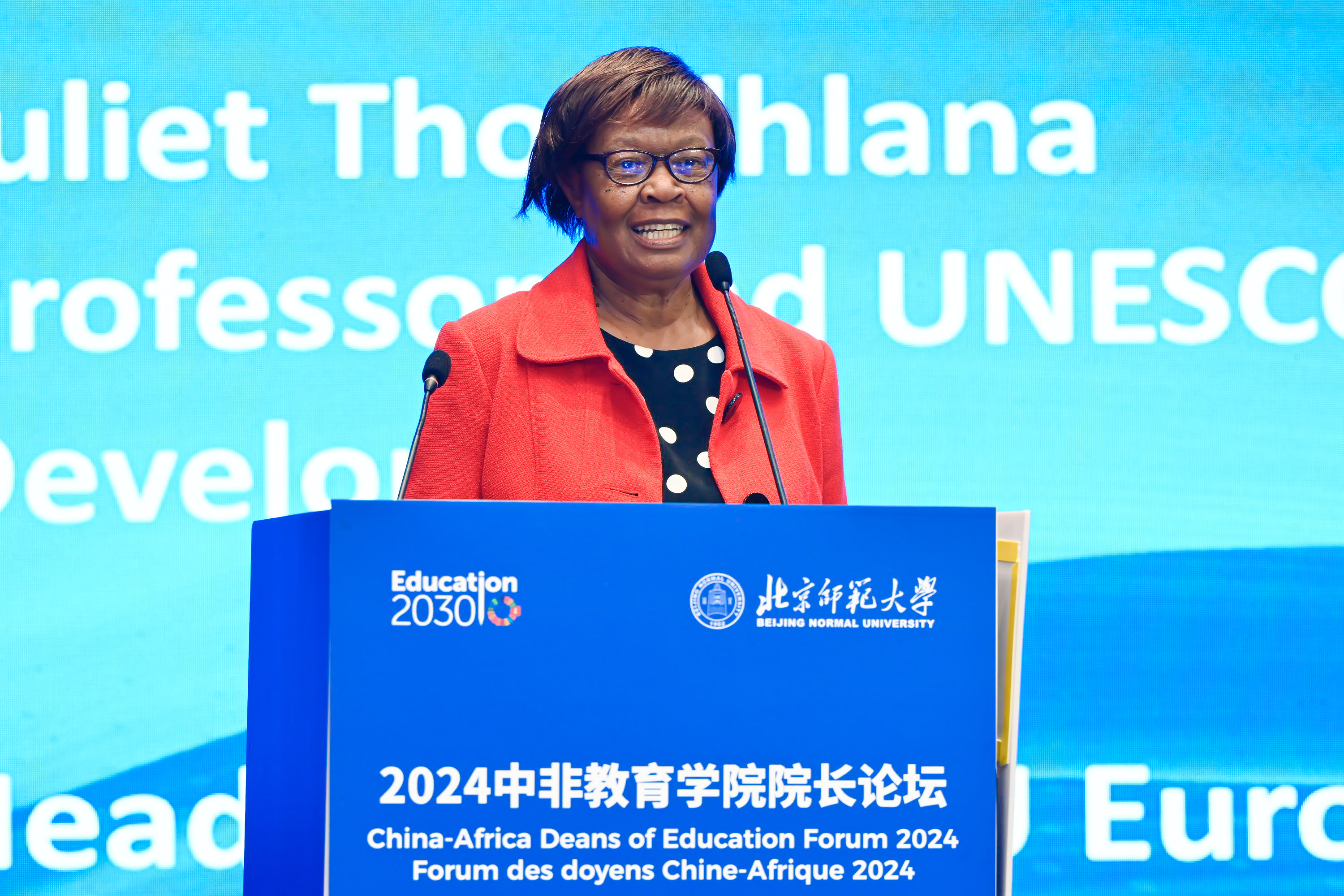
Prof. Zhu Xudong, Dean of the Faculty of Education at Beijing Normal University, addressed the topic "Enhancing Global Education Development: A Perspective on Chinese Modernisation". He identified the dual challenges facing China's modernization—national rejuvenation and a shifting global landscape. Drawing on key initiatives such as the Belt and Road Initiative, the Global Development Initiative, and the Global Civilization Initiative, Prof. Zhu highlighted the role of education in advancing global development. He outlined five critical areas—global governance, economy, culture, security, and sustainable development—where education can help address international challenges. He also underscored the importance of fostering China-Africa and North-South cooperation to contribute to global development with education at its core.
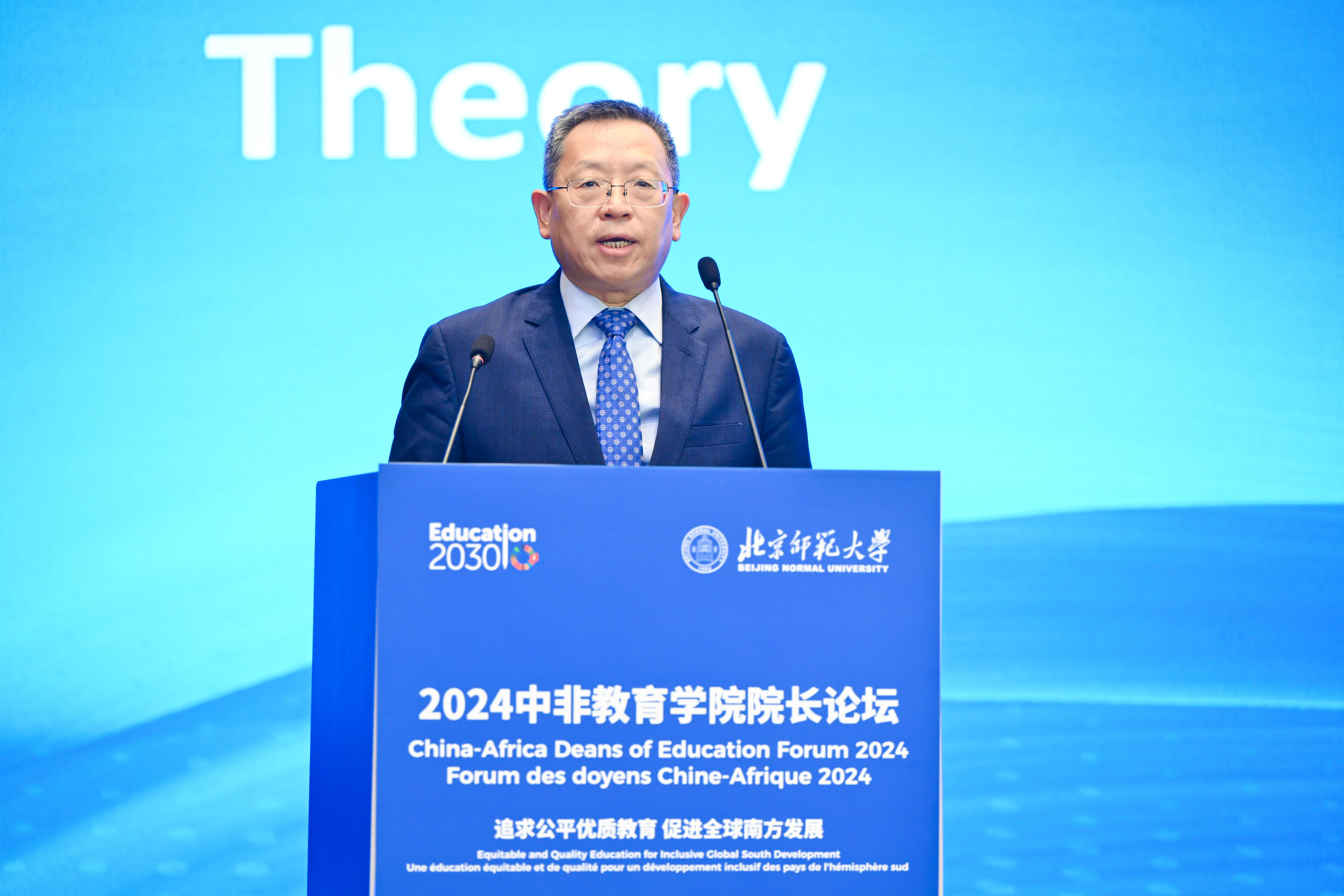
Forum Overview
The China-Africa Deans of Education Forum 2024 was hosted by Beijing Normal University and co-organised by the Falcuty of Education at Beijing Normal University, UNESCO IICBA, UNESCO INRULED, College of Education at Zhejiang Normal University and China Institute of Education and Social Development, with support from National Commission of the People’s Republic of China for UNESCO. The forum was part of the China-Africa-UNESCO High-Level Dialogue on Education and Cultural Heritage Protection. Over 100 participants, including deans from universities across China and nine African countries, researchers, policymakers, and international organisation representatives, attended the event to discuss global education development.
Notably, two African deans who are alumni of Beijing Normal University—Dr. Joel Jonathan Kayombo from the University of Dar es Salaam in Tanzania and Prof. Andry Harinaina Rabearisoa from the University of Fianarantsoa in Madagascar— contributed to the discussions.
Since its inception, the China-Africa Deans of Education Forum has engaged nearly 40 African universities, fostering ongoing dialogue and collaboration in education to promote sustainable development across China and Africa.










